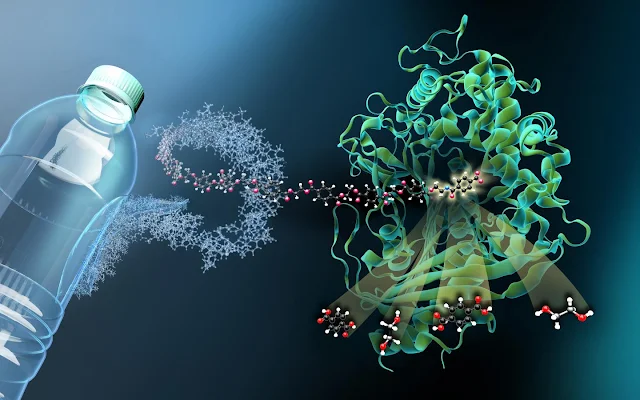PET64- Polyester Killer

Plastic Pollution and the PET Problem
Plastic pollution is a global crisis that is wreaking havoc on our coasts and oceans. Among the many culprits contributing to this environmental catastrophe are plastic objects made from polyethylene terephthalate, or PET. These objects, once discarded, can linger in the environment for hundreds of years, causing harm to marine life and ecosystems. However, a recent scientific breakthrough offers a glimmer of hope in the fight against plastic pollution.
Unveiling PET46: A Remarkable Enzyme
Scientist's explored the capability of microorganisms to continuously degrade PET polymers using enzymes. The research team identified and characterized a novel PET-degrading enzyme, aptly named PET46, from a previously uncultured deep-sea microorganism. This enzyme possesses several unique features that make it stand out in the realm of PET-degrading enzymes.
PET46 demonstrates an exceptional ability to degrade both long-chain PET molecules (polymers) and short-chain PET molecules (oligomers), making it a continuous and efficient solution for plastic degradation. Unlike its counterparts, PET46 employs a distinct mechanism for substrate binding, utilizing a crucial 'lid' composed of 45 amino acids above its active center.
Potential Applications
Beyond its importance for environmental conservation, PET46 shows promise in various biotechnological applications. Remarkably, PET46 bears a striking similarity to ferulic acid esterase, an enzyme responsible for breaking down lignin in plant cell walls. Given the structural similarities between lignin and PET, the discovery of PET-degrading enzymes in nature could prove invaluable for composting wood in forest soils and addressing terrestrial plastic pollution.
What makes PET46 even more intriguing is its thermal stability. It operates efficiently at temperatures as high as 70°C, surpassing the performance of known PET-degrading enzymes from bacteria and composting plants at their respective optimum temperatures.
Conclusion
The fight against plastic pollution is far from over, but this recent discovery offers a ray of hope. By tapping into the power of deep-sea microorganisms and unveiling the remarkable PET46 enzyme, scientists have taken a significant step towards a more sustainable and cleaner future for our coasts and oceans. As we continue to explore the potential of biotechnology and innovative solutions, we move closer to a world where plastic pollution is no longer an insurmountable challenge.
Research Source
The research was carried out as part of the PLASTISEA project, coordinated by Professor Ute Hentschel Humeida of the GEOMAR Helmholtz Center for Ocean Research in Kiel. First author Dr. Jennifer Chow from the University of Hamburg and first author Dr. Pablo Pérez-Garcia, who works as a research assistant in Schmitz-Streit's group, contributed equally to the study.*